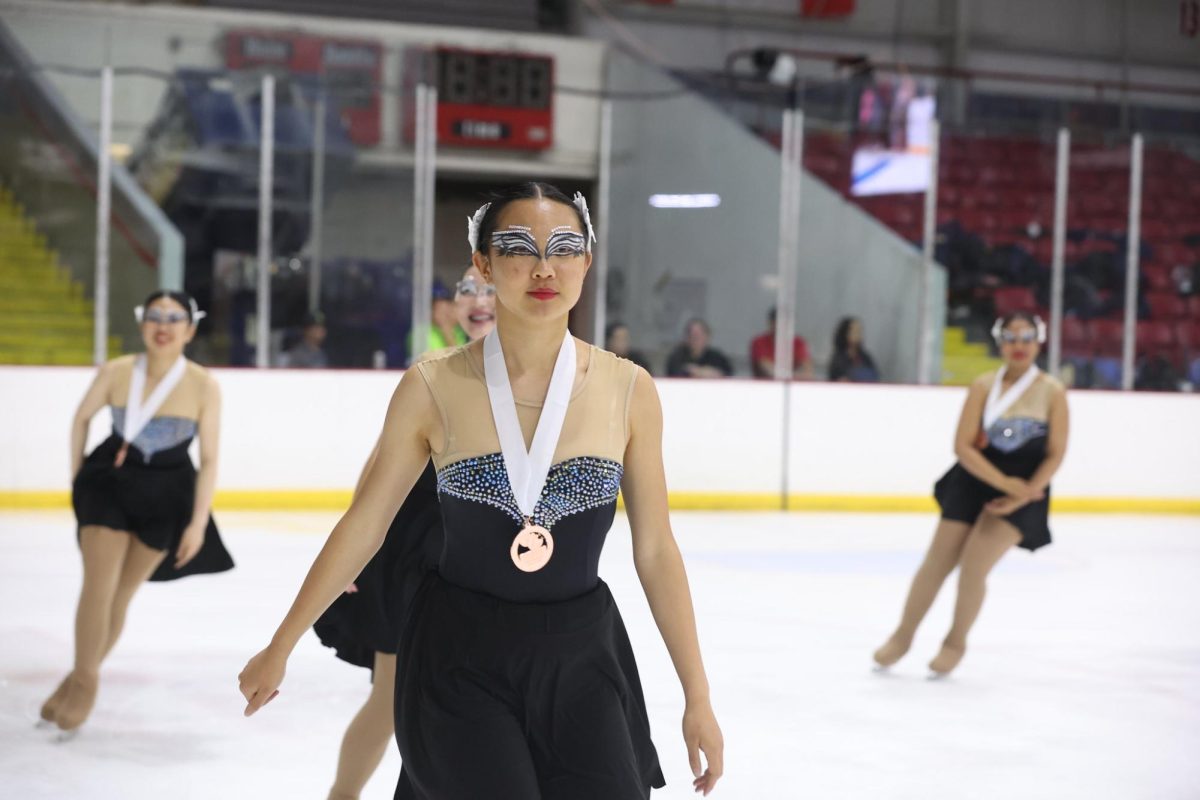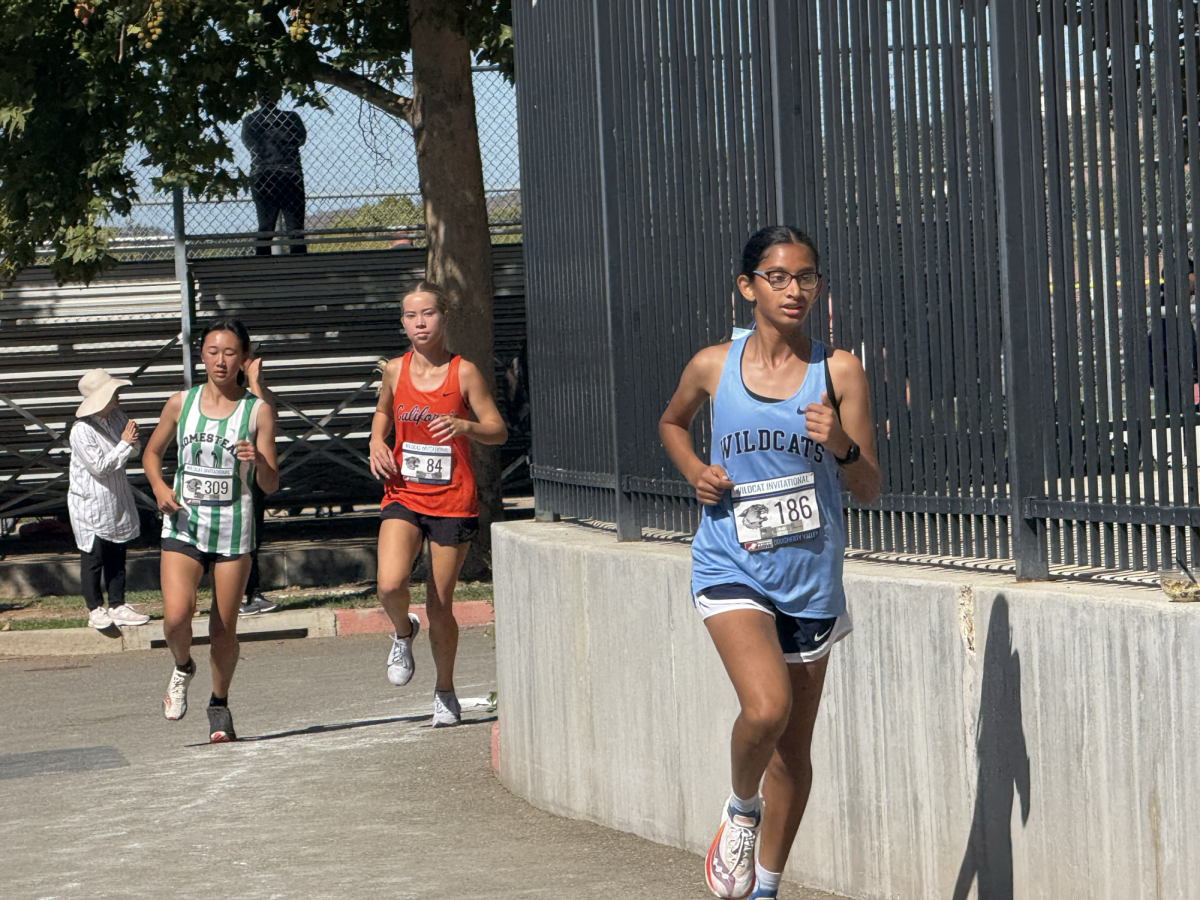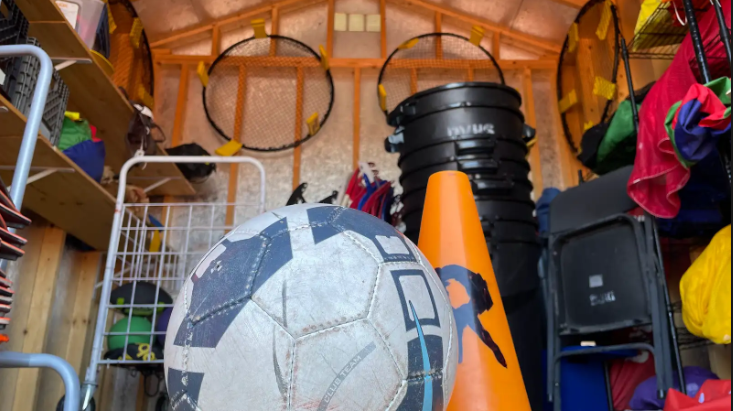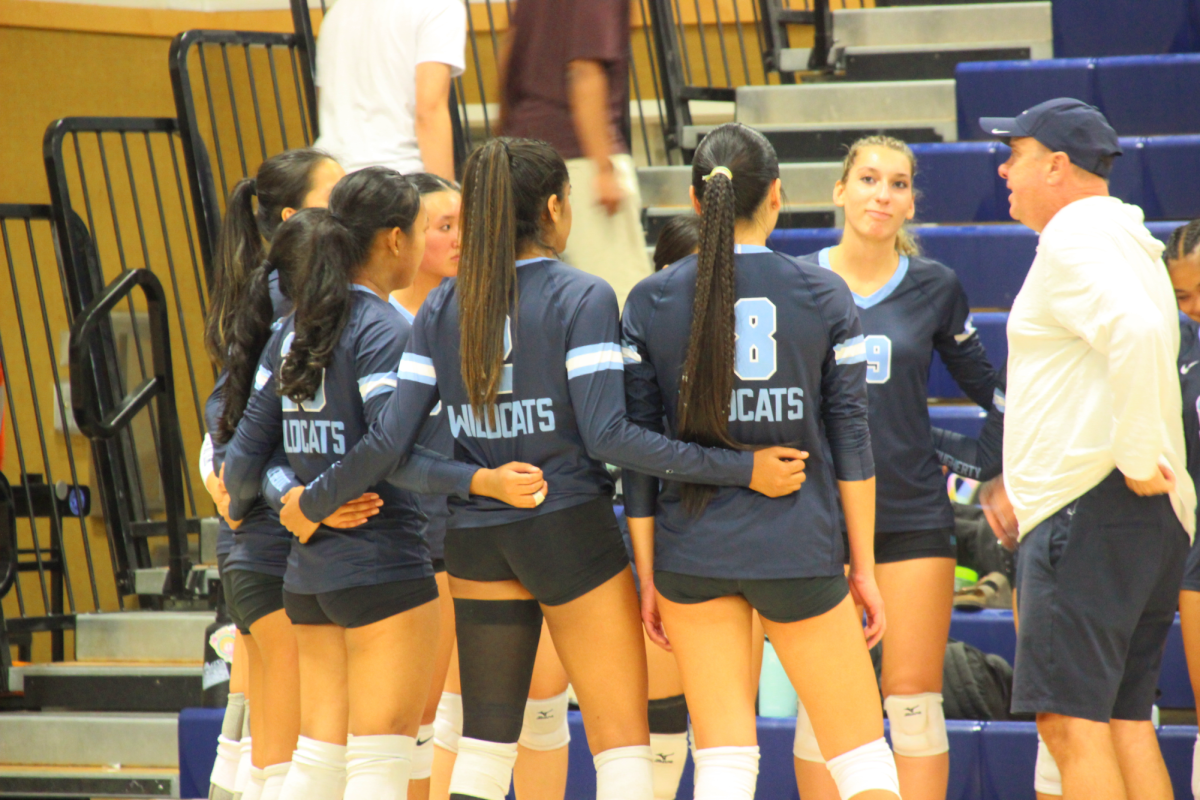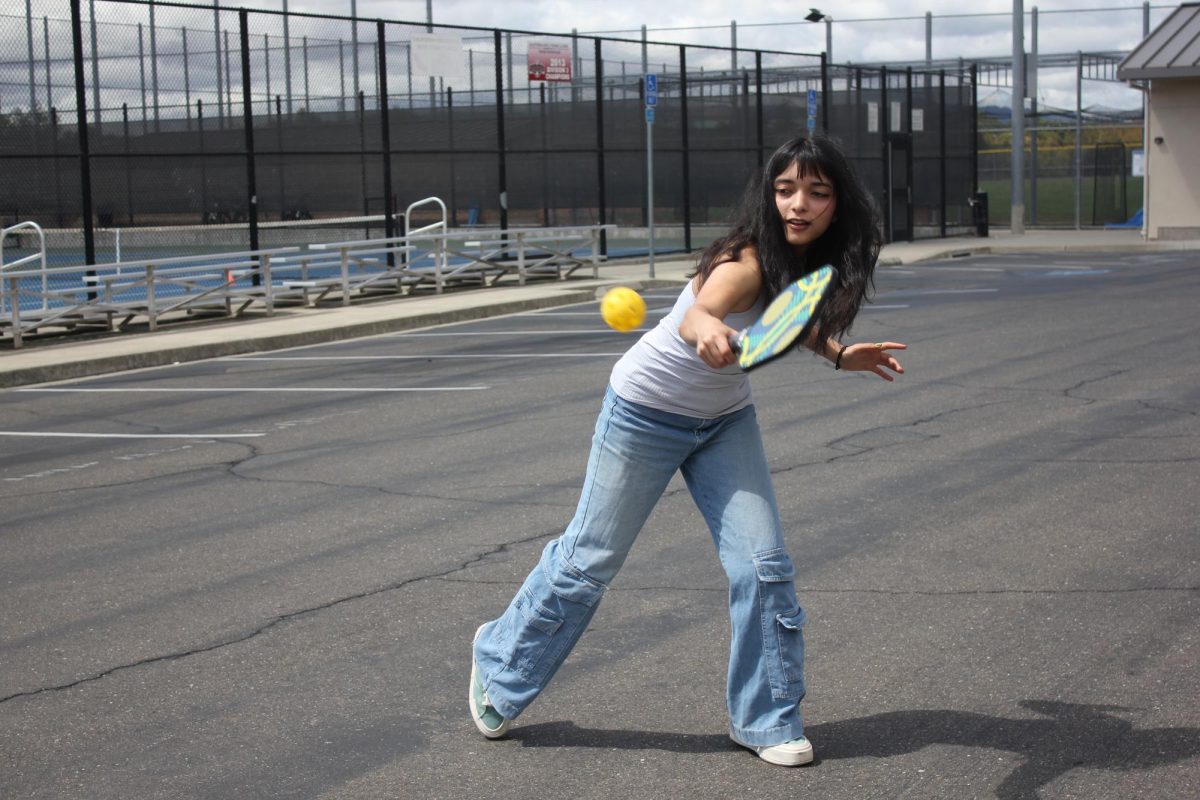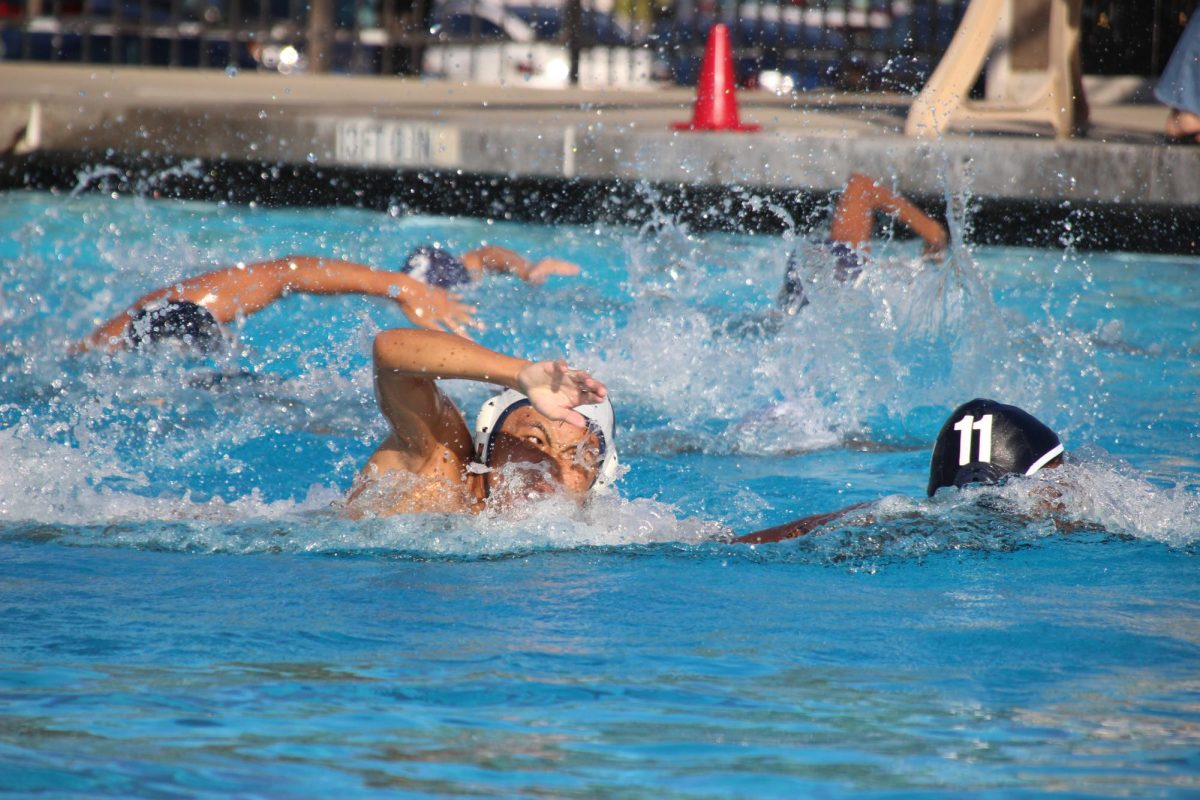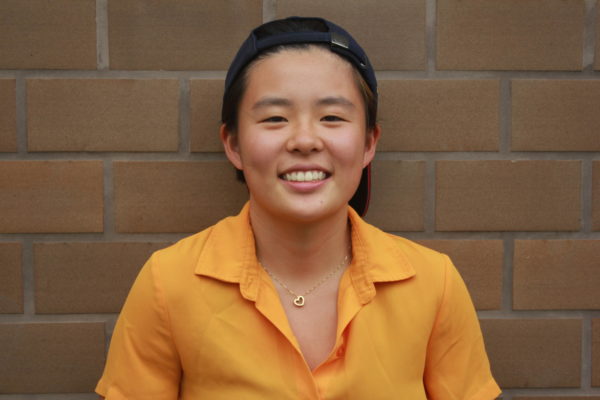Senior Evelyn Wu went ice skating for the first time at a friend’s birthday party in 2012.
After this life-changing skating session, Wu started taking group lessons, and since then, she has never wanted to stop.
“I remember when she used to skate in colorful striped leggings and her glasses would fall off while she spun,” Kim Micheff, Wu’s coach of 10 years said. “Now that she’s older, she’s developed her own unique style of skating. She has the best camel-catch [spin] in the rink, and I love how fast she skates.”
Wu has been figure skating since she was six years old, dabbling in synchronized skating in middle school and later moving on to theater on ice performances.
“I [love] how it makes you feel like you’re flying,” Wu said. “When you skate really fast and the wind [is] in your face.”
But for Wu, figure skating is more than just the sport and physical exertion; it’s her life.
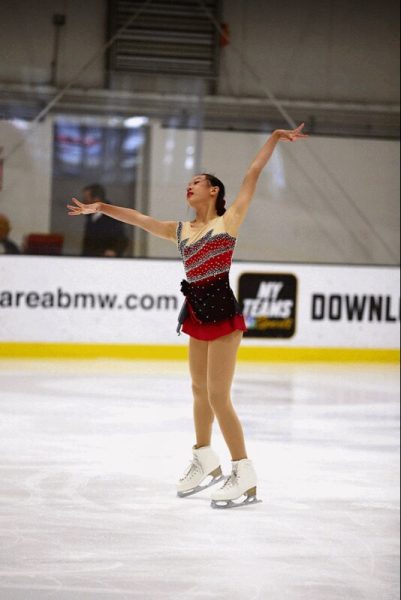
Wu spends three weekdays practicing for two hours in the morning before school. On Saturdays, off-ice practice in San Mateo starts from 5:45 a.m. and transitions into on-ice conditioning till 8:15 a.m. Afterwards, an additional hour of official training from her coaches. Sundays continue on with three more hours of practice.
Evidently a morning person, Wu balances her work and academic life by being productive, often doing her work on the long car rides. Her unmatched dedication and motivation to figure skating has led her to compete in some of the most prominent tournaments across the nation.
Wu passed the Moves in the Field senior level in 2021, and completed the Senior Free Skate just last year, becoming a U.S. figure skating gold medalist. Wu also placed third in regionals at the Silicon Valley Open competition, with her ice theater team placing third at Nationals last year.
After two years of synchronized skating with the team Silver Stars, Wu began theater on ice in her sophomore year.
“I found [synchronized skating] more constricting than theater because [in theater] everyone has their own role, and we all work to complement each other in different ways,” Wu said. “It’s just more unique in that perspective.”
With theater, skaters have to not only focus on technical skills, but acting and facial expressions, as well as using props. Internationally, Theater on Ice is referred to as Ballet on Ice, due to the amount of storytelling that comes with it.
“I grew up hating ballet because I was like, ‘I don’t want to wear a tutu,’” Wu said. “But now, [after] I started taking some ballet lessons, it’s taught me how much you have to focus on every part of your body. Just learning how everything works together is something that has stuck with me.”
When Wu isn’t skating, she’s spending her time cross-training: building her endurance and lowering her heart rate. Figure skating is both an aerobic and anaerobic activity, and its hard-core training regime to be successful requires motivation and genuine love for the sport.
One of Wu’s inspirations is the two-time Olympic Champion figure skater Yuzuru Hanyu.
“[Hanyu] talks about how he’s always struggled a lot with loving skating, and how even he questions if he really loves the sport sometimes,” Wu commented, after watching a documentary on Hanyu. “It’s not always easy to be motivated about this sport that you do because it takes up so much time. Hearing that he also struggles with his passion for the sport is inspiring and reassuring.”
With ice skating, the progression of skills is not often linear. Unlike other sports, it’s actually very easy to regress.
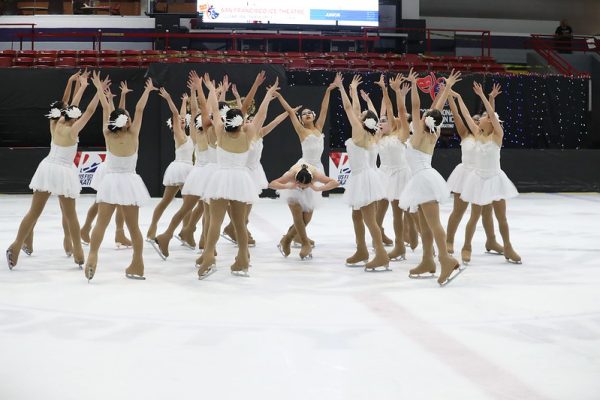
“A lot of it is so mental; the takeoff of a jump is like a split second and having to think about everything is a huge mental game. Once you fall in a jump that you’ve been doing well at, [it can become] a cycle [that’s] hard to break out of, and then you’re falling a lot more [often].”
With individual performances, there is a mental challenge of being the only one on ice for five to seven minute programs in front of the audience.
“Nerves affect all skaters, but Evelyn used to especially struggle with them.” Micheff said, “When she skated her Rachmaninoff program a few years ago [in 2018], her arms visibly shook and her body stiffened up during the Silicon Valley Open [competition].”
Though Wu was disappointed with her performance, quitting never crossed her mind.
“I think I’m most proud of how expressive I’ve become,” Wu explained. “Just how much more comfortable I am performing and not really focusing on how others perceive me or judge me.”
As Wu continues with her individual skating schedule, her theater on ice team is busy preparing for the Nations Cup located in France in April.


